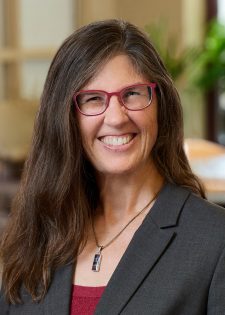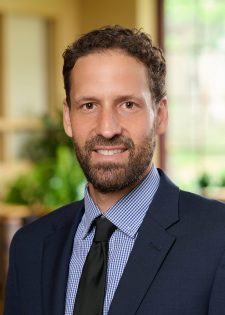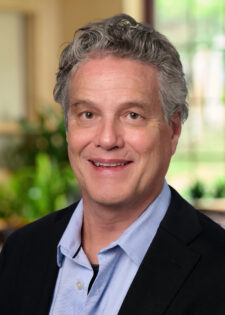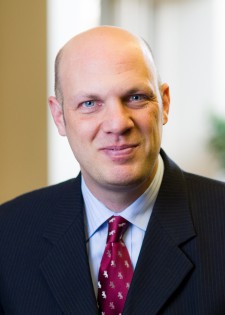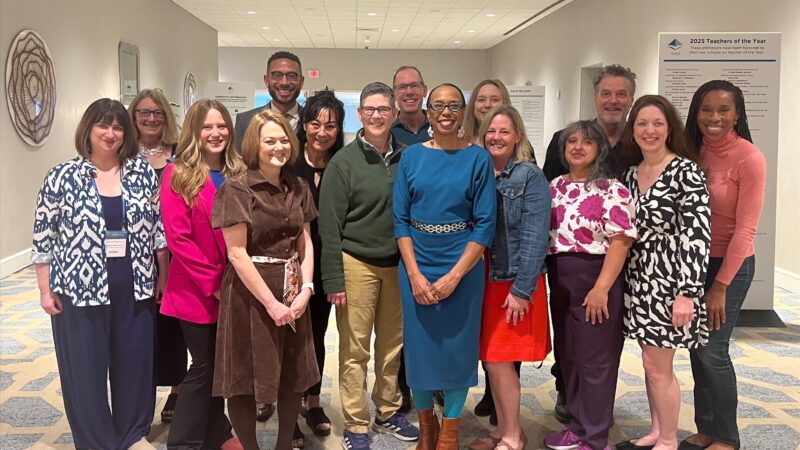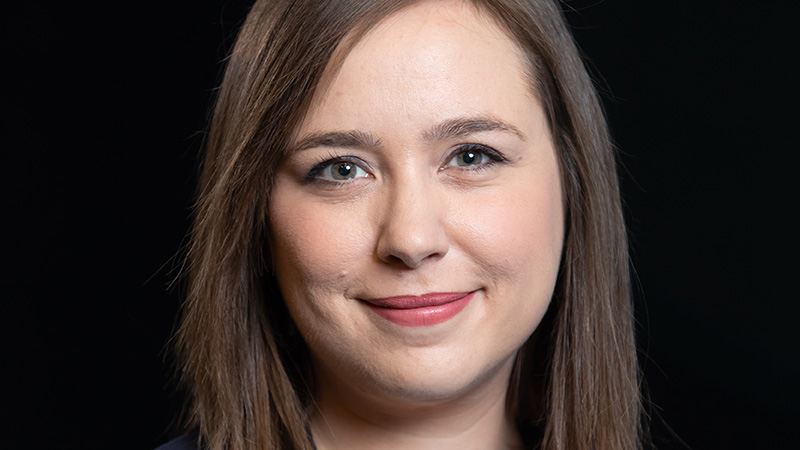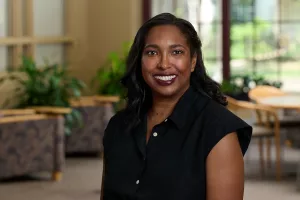
Associate Professor Nicole McConlogue
Nicole McConlogue is the first to admit she didn’t exactly know what she wanted to be when she grew up.
Born and raised in Baltimore, she started taking French in seventh grade, which ultimately led to an undergraduate degree in French literature. She then went to law school and focused on consumer protection. That led to several years as the project manager for consumer protection matters at a pro bono service in Maryland, followed by a pivot to legal education.
McConlogue’s winding path gives her a unique lived experience as she joins Mitchell Hamline as an associate professor of law. But none of it was meticulously planned.
“The truth is, there were points in my life when I could have used more intentional guidance from counselors or mentors,” said McConlogue. “I gravitated towards consumer protection law because I wanted to stop bad actors from putting a thumb on the scales to enrich themselves at the expense of marginalized people who are doing the right things and just trying to make it out there. If I were counseling my teenage self, I’d probably have majored in something like economics or sociology.
“But my roundabout path has also made me passionate about offering my students the kind of mentoring and counseling I needed.”
McConlogue also brings important clinical education experience to Mitchell Hamline, having most recently directed the clinical program at West Virginia College of Law. She oversaw the entire program while also directing the Litigation and Advocacy Law Clinic. “We did a lot of work to rethink how our students could get relevant and practical real-world legal experience,” said McConlogue. “Traditional client representation is crucial, but there are a multitude of other ways lawyers are well-positioned to benefit people and organizations through their training.
“Our goal was to expose students to all the ways that lawyers can get involved in communities and change the world, which is very much at the heart of what Mitchell Hamline does. It’s energizing to be here.”
That ethos, McConlogue adds was informed by her graduation from law school in 2010–a post-recession time when finding work as a practicing attorney was difficult. She initially did pro bono work to use her skills, which soon led to a job at a small firm and, later, the Pro Bono Resource Center of Maryland.
When she turned to academia, she did so with an eye towards clinical education. She first joined the University of Baltimore School of Law as a clinical teaching fellow in that school’s advocacy clinic. She then joined the West Virginia University College of Law in 2020.
Last December, McConlogue was named to the transition team for Maryland’s incoming attorney general, Anthony Brown. McConlogue, who clerked in the antitrust division as a law student, advised the attorney general-elect on how to best proceed in tackling consumer protection issues.
At Mitchell Hamline, McConlogue is teaching advocacy this fall, a course that focuses on practical lawyering skills. “I love showing students there are a lot of options and ways to be a lawyer,” she said. “And, as my own story shows – there are also a lot of ways to end up as a law student.
“All of those ways are valid.”
Mitchell Hamline faculty
The latest from Faculty in the News
Nonprofit Quarterly February 11, 2026
KAXE February 11, 2026
Star Tribune February 12, 2026
The latest faculty publications
Psychological Medicine. 2026;56:e16 January 14, 2026
The American Journal of Bioethics, 26(1), 41–43 January 14, 2026
Book February 1, 2026
The latest faculty headlines
Mitchell Hamline faculty showcase expertise at 2026 AALS Annual Meeting
From left: Miriam Itzkowitz, Laura Reilly ’94, Natalie Netzel ’15, Tressa Ries, Jared Mollenkof, Kaori Kenmotsu ’22, Carolyn Grose, Anthony Niedwiecki, Camille Davidson, Eleanor Frisch, Lynn LeMoine ’11, Hetal Dalal, Brad Colbert ’85, Leanne Fuith ’10, …
Mitchell Hamline welcomes Jessica West to faculty
Assistant Professor of Law Jessica West Joining the Mitchell Hamline faculty as an assistant professor of law, Jessica West combines a passion for student success with her experience as a practitioner to help law students build the skills they need for …
Eleanor Frisch joins legal writing faculty
Assistant Professor of Law Eleanor Frisch Having a strong sense of justice and being skilled at argumentation are what first led Eleanor Frisch (they/she) to a career in law, but it is a much deeper passion that has turned her now to teaching—a love fo …

